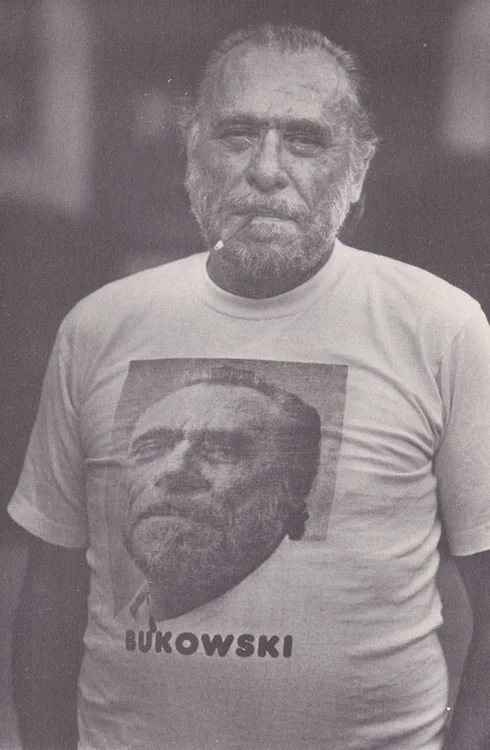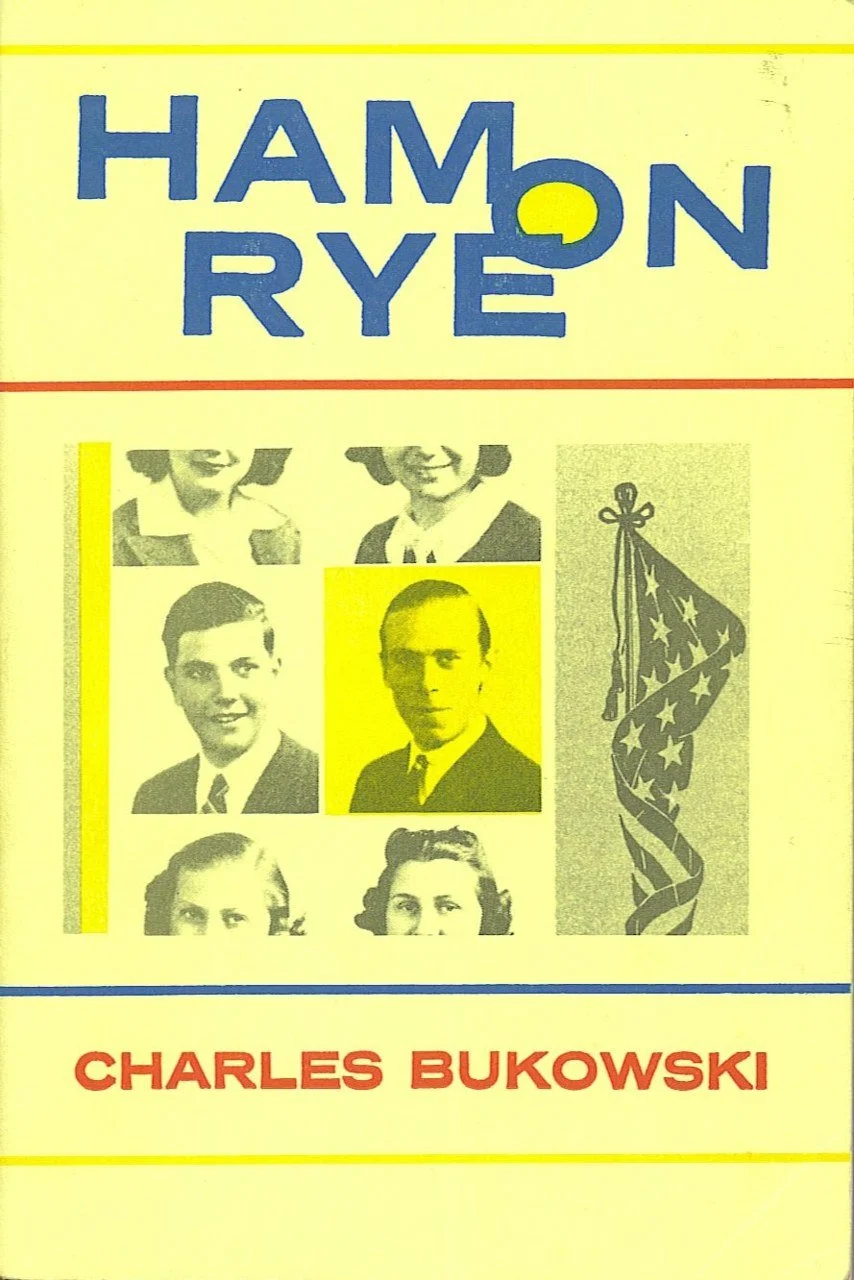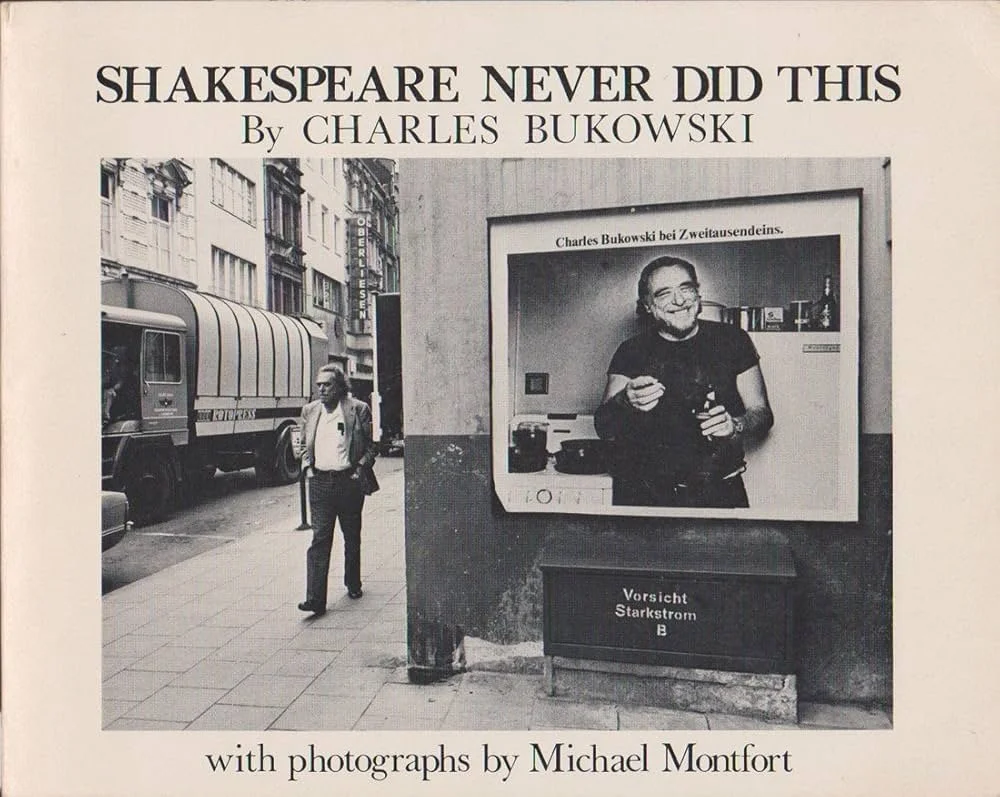Charles Bukowski: A Black Flowers Primer
Charles Bukowski entered my life when I was 22. Young, confused and finding my feet in life - I smoked cheap cigarettes, drank too much at weekends, juggled difficult people in my life and tried to pen my best work in the time I had between my job and the weekend. Sounds very Bukowski I know but what writer does not face those kinds of hardships? I was essentially trying my best with what I had.
Poetry always came first - then fiction. Bukowski was the lynch pin that allowed me to link these up using a free flowing conversational style, a style I never knew existed - a style I would use for the rest of my life. It also linked up my two loves – the spirit of rock and roll and literature. The fakes and the flakes of the two scenes were in his shadow – he was an authentic voice in a sea of try-hards. For an outsider, I had found my place in the world and it was not the world of my parents.
So, here I am 20+ years later writing about one of the most influential writers of my craft and for those of you reading this and who have been tempted to read him or never heard of him - I envy you! I have thought long and hard about this list, I love a lot of his work so distilling it to a single list felt odd but…here we are. Go forth and enjoy.
Ham on Rye (1982)
Probably one of the most important books to read when heading into the world of Charles Bukowski. It is a very honest and heartbreaking piece of work, it is a coming-of-age semi-autobiographical novel that is raw, unfiltered with a twist of humour (of course, what is Bukowski without the laughs?) It is a deep human story that will resonate with all who felt like they were an outsider growing up. Although this is told through the lens of Bukowski’s altar-ego Henry Chinaski, there is a very thin veil between truth and fiction here but more importantly it gives some context to Bukowski’s real character. This is a must-read.
Poetry - Love is a Dog From Hell (1977) and You Get So Alone At Times That It Just Makes Sense (1986)
Charles Bukowski’s poetry has range. His poetry reads like the drunkard, the bad guy who lies in the gutter uttering poetry to the stars - I find beauty in such things.
Bukowski has a knack of saying something poignant and in such a simple manner that you think – shit! Why didn't I think of that? He writes such beautifully in his poem I taste the ashes of your death and then we jump to the funny and comical drunken writing of who in the hell is Tom Jones? And back to the simplicity of about the PEN conference (a favourite of mine). That just flawed me when I first read it. I printed it out and stuck it above my desk to remind me of my sickness.
Factotum (1975)
This is Bukowski’s second novel. Yes novel! A work of fiction apparently! But this is Bukowski, so it is a tapestry of biographical and mythical threads bound together by women and booze. His way of writing has caused so much controversy over the years because some do not understand if he is writing truth or fiction - to me, this is some of the best writing of our time! This novel may be the one that I love the most next to Post Office because both books speak to the person who feels like life has got them by the throat. The story revolves around drifting and not feeling like you really belong - next job, next woman, next rooming house...who knows what will happen next? If you want to get into the crux of Bukowski then try the trilogy of work - Post Office, Factotum and Women.
Shakespeare Never Did This. Photographs by Michael Montfort (1996)
The wonderful photographs of Michael Montfort are interwoven with poetic and amusing observations from Bukowski whilst they embarked on a trip to unlock some of his ancestry in Europe. Away from the comfort of his typewriter and the bars of Los Angeles, he is accompanied by his wife Linda, travelling to the town of his ancestry and meeting distant relatives. The photographs show a figure of a man who holds himself with such poise and confidence yet some of the photographs show a vulnerability in his eyes – quite a juxtaposition and paradoxical figure – exactly what Bukowski was and what I love him for.




